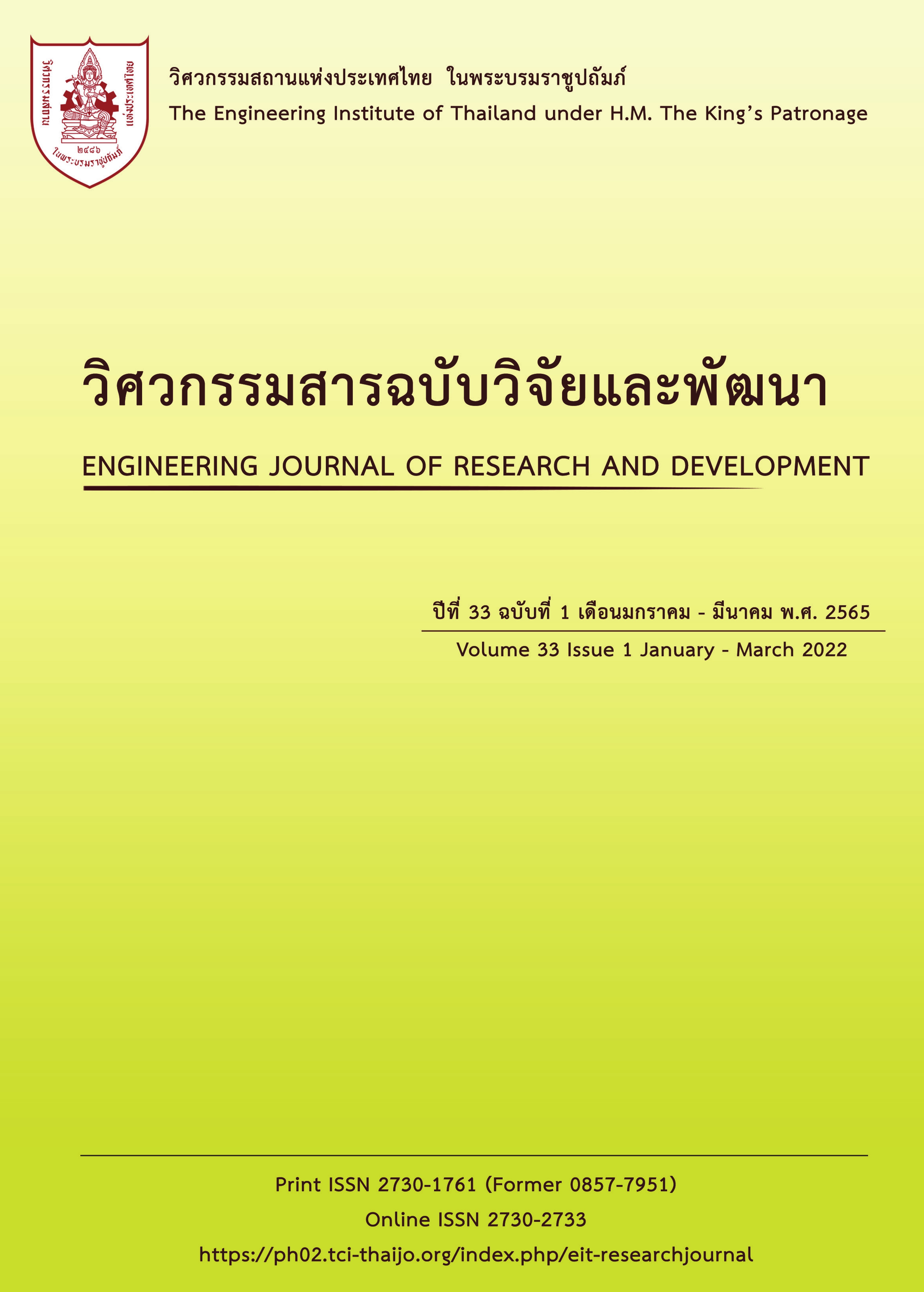STRESS SCORE OF CIVIL ENGINEERING STAFF IN THE ROAD CONSTRUCTION PROJECT OF THAILAND
Main Article Content
Abstract
This research was conducted as following. First, the research investigated the stress score of civil engineering staff in 56 projects of the department of rural roads which were carried out from July 2020 to December 2020. The results revealed that out of the full score of 100.00 point, the sample group’s average stress score was 50.16 points. The median score was 49.00 point and the lowest and highest scores were 20.00 point and 80.00 point, respectively. Categorizing the sample group according to stress levels showed that the groups with severe stress, high stress, moderate stress, and low stress accounted for 22.80%, 45%, 29.30%, and 2.90%, respectively. Second, the study analyzed the relationship between individual and career factors and stress scores. It appeared that gender, family income, and job positions had a significant relationship with stress scores, at a statistical significance of 0.05. Third, the research created a multiple linear regression model to predict stress scores, for which five individual and career factors were selected for inclusion: having excess income (family income), working as a foreman or a civil engineer, being male (gender), being 41 to 50 years of age (age), and having to work seven days a week (the number of workdays per week). The predicting power of the aforementioned model was at 13.10 %.
Article Details

This work is licensed under a Creative Commons Attribution-NonCommercial-NoDerivatives 4.0 International License.
The published articles are copyright of the Engineering Journal of Research and Development, The Engineering Institute of Thailand Under H.M. The King's Patronage (EIT).
References
Ministry of Transport. Work plan in the main mission of the Ministry of Transport under the strategy of the development of the Thai transport system for a period of 20 years (2017-2036), 2019. Available from: http:// www.mot.go.th [Accessed 1 September 2020].
Kasikorn Research Center. Penetrating the Thai construction direction, year '19, 2018. Available from: http:// www. kasikornbank.com [Accessed 1 September 2020].
Vichianpradit, K., Yingratanasuk, D. T. and Lormpong, D. S. Factors Related To Occupational Stress among Registered Nurses In Autonomous University Hospitals. National Graduate Study Conferrence 2nd, 17 May 2013, pp. 582-593.
Chunin, N. Students’ Techniques in Managing Stress at King Mongkut’s Institute of Technology North Bangkok. The Journal of Industrial Technology, 2005, 3 (2), pp. 42-51.
Department of Mental Health, Ministry of Public Health. Self-analysis stress test; [about 2 screens]. Available from: http://www.dmh.go.th/ (in Thai) [Accessed 1 September 2020].
Mahatnirunkul, S., Pumpaisanchai, W. and Tapanya, P. The construction of Suan Prung stress test for Thai population. Suan prung Hospital. Chiang Mai Province, 1997.
Dongsoytong, T. Stress and Related Factors among Nurses Working in the Princess Mother National Institute on Drug Abuse Treatment. Journal of Health Science, 2014, 23 (4), July - August 2014.
Petchram, W. Employees' Stress and Factors Affecting It: A Case Study of an Offshore Gas Plant in Gulf of Thailand. Journal of Science and Technology Ubon Ratchathani University, 2016, 18 (1), January – April 2016.
Konchanatsanyakorn, P. Factors that cause work stress, the ability to face and overcome common obstacles and stresses; Affecting the performance of employees of state enterprises: a case study of the Government Pharmaceutical Organization. Master of Arts Thesis, Thammasat University, 2008.
Koongammak, J. Work Stress of Instructors in State Universities. Master of Science, Applied Statistics: Bunditpatana Institute of Service Sciences. 2014.


